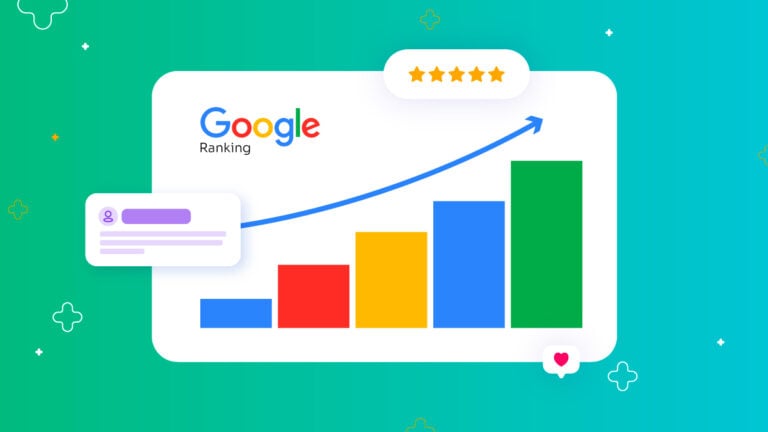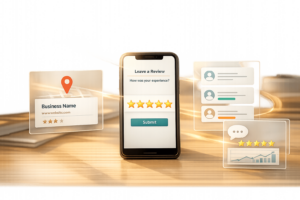Search in 2026 isn’t just “ten blue links.” Google’s AI experiences (like AI Overviews/AI Mode) and other assistants increasingly extract answers from well-structured, trustworthy pages. The playbook below shows how small businesses can win classic rankings and be cited by AI answers.
1) Put people-first content and experience at the center
Google’s guidance is clear: create helpful, reliable, people-first content. For every important page:
- Lead with the answer: State the solution in the first 1–2 paragraphs; elaborate after.
- Demonstrate experience: Add first-hand tips, examples, and author credentials.
- Keep it fresh: Update stats, screenshots, pricing, and policies at least twice a year.
- Use sources: Link to authoritative references when you cite facts or numbers.
2) Structure pages so AI can quote you
Assistants select chunks (definitions, steps, tables, FAQs). Make extraction easy:
- Write scannable sections with one idea per
<h2>/<h3>. - Include checklists, numbered steps, and concise FAQs.
- Mark up with relevant schema (FAQ, HowTo, Product/Service, Organization/LocalBusiness).
- Use precise, descriptive anchors for internal links (see examples below).
3) Win the technical baseline
Technical quality is table stakes for both rankings and inclusion in AI answers:
- Core Web Vitals: Optimize LCP, INP, CLS (see Google’s Core Web Vitals guidance).
- Indexability: Fix noindex/canonical issues; keep XML sitemaps accurate; monitor coverage.
- Clean HTML: Avoid excessive wrappers; ensure headings reflect the information hierarchy.
- Page experience: Improve UX and accessibility; reduce layout shift and bloat (Google’s page experience notes).
4) Target 2026-ready queries and intents
Blend classic keywords with conversational, task-oriented phrasing that triggers AI summaries:
- Primary intent: “how to rank higher on google 2026”, “improve local seo small business”.
- Task phrases: “steps”, “checklist”, “best way”, “cost”, “vs”.
- Local/transactional: “website design service near me”, “google business profile optimization”.
Deepen your research process with these practical ideas from UENI’s guide: Top 6 Keyword Research Tips.
5) On-page optimization that still moves the needle
- Title tags: Lead with the benefit; keep ~55–60 characters.
- Meta descriptions: Write for clicks (not rankings), ~150–160 characters.
- Topical depth: Consolidate thin posts; cover related sub-questions on one strong page.
- Media: Use original images/video; describe purpose in alt text.
- Internal links: Add descriptive anchors to relevant pages, e.g.
30 Actionable SEO Tips for Small Businesses and
Small Business Website Design: What to Look For.
6) Local SEO: dominate your area
If you serve customers locally, these signals can outweigh generic authority:
- Google Business Profile: Complete every field, post updates, add new photos, and track Q&A. Start with Google Business Profile Help.
- Reviews: Request consistently and respond to all feedback; show review snippets where allowed.
- Citations (NAP): Keep name, address, phone consistent; list in quality directories (see UENI’s local directory roundup).
7) Link earning (without spam)
- Original data: Simple surveys or pricing studies others will cite.
- Local press & associations: Contribute expert quotes and sponsor roundups.
- Resource pages: Create useful evergreen guides worth bookmarking and referencing.
8) Monitor, learn, iterate
- Search Console: Track query changes, AI Overview exposure when available, and coverage issues.
- Analytics: Watch engagement (scroll, time on page), conversions, and assisted conversions.
- Update cadence: Refresh high-value content every 6–12 months; review after core updates.
FAQ: SEO & AI in 2026
How do I get cited in Google’s AI Overviews?
You can’t “submit” to AI Overviews. Eligibility follows standard best practices: content that’s accurate, well-structured (definitions, steps, FAQs), properly cited, technically accessible, and aligned with people-first guidance. Google’s overview of AI experiences and vision is here: Google I/O 2025 updates and the AI Overviews expansion.
Does traditional SEO still matter?
Yes. Organic rankings drive discovery, and many sources cited in AI answers already rank well. Think “both/and”: rank pages and structure them for extraction.
How often should I update content?
For evergreen pages, twice per year or whenever facts change. Keep a simple refresh log so you can show recency to users (and to yourself).
The bottom line
Small businesses that publish genuinely helpful, structured content — and pair it with solid technical hygiene and local signals — will rank and be referenced across search and AI surfaces. If you want this done for you, UENI is the choice: see how we boost online visibility end-to-end, from site build to ongoing SEO and Local SEO.









